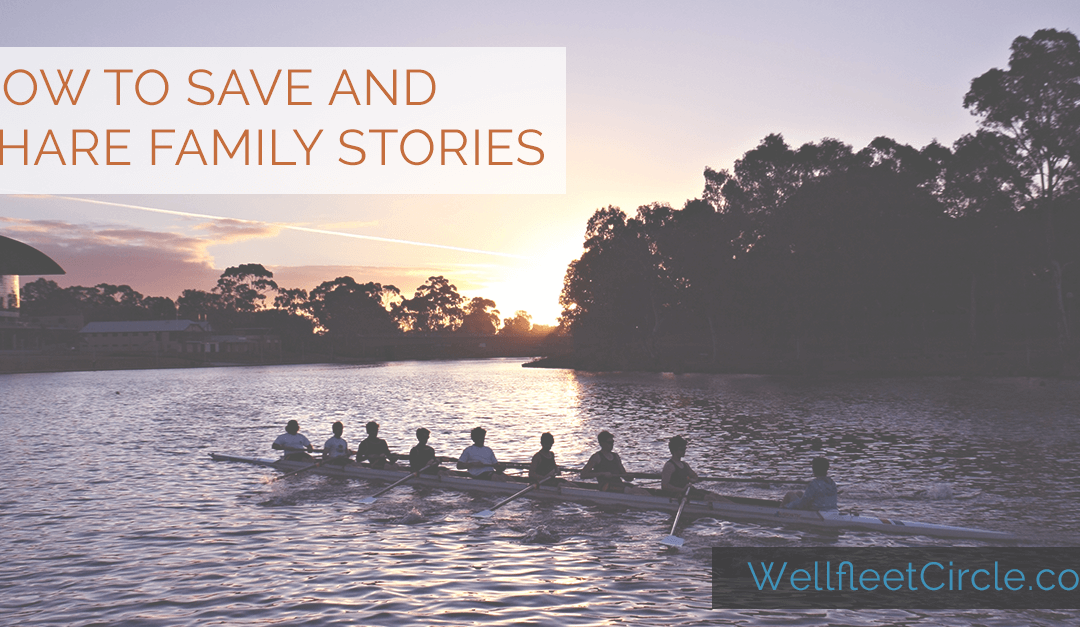After rowing season was over, we discovered our shared passion for the outdoors, history and good red wine. And we fell in love. That was 37 years ago.
We have told this story often to our three children. It comes up when we talk about how we went to school together, or when we kick the kids off the Internet to get outside and hike with us, or have discussions about history and what it teaches us.
My husband tells the story in a jovial joking manner, claiming that I fell in love with his great arm muscles. I, being more serious, point out that although I admired his athleticism, it was his incredible passion for learning and his strong ethical beliefs that drew me to him. However it is told, the story is now part of the family lore.
It’s just one family story among the many we tell along with the stories of when they were born and the things they did when they were little, the stories about the two of us growing up and about their grandparents before that.
These kinds of stories build connection and show kids values without lecturing. For generations, storytelling has brought people together as entertainment and a way to convey beliefs and ideas.
The first step to telling family stories is simply to tell them, but there are better ways of saving them. When we write family stories down, we preserve them in a new way.
I love legacy letters as a way to pass on family stories. Legacy letters are often written for a milestone or event. You could write a legacy letter:
- to your child each year for their birthday
- to your sister when she gets married
- to your grandchild for their graduation
- to a dear friend celebrating a “big” birthday
- to a parent upon retirement
- to your spouse for your anniversary.
Legacy letters are a wonderful way to share wisdom, lessons and values along with love and memories. We look for these kinds of stories at milestone events, but legacy letters don’t have to be tied to a major event. And you don’t have to have a legacy letter in mind when you set out to write a family story.
Maybe today, you just sit down on a random Monday and start to write. You tap into memories. You tap into love. A question triggers a memory and you write your story as an answer. Your child struggles with fears and you put down on paper the story about the time you were afraid—and brave.
You forget that you aren’t a writer. You remember the story you want to tell.
A legacy writing coach can help you go deeper into your stories, find ways to make them clearer, tap into the reasons and values the stories evokes. But it all starts with your stories.
Write your stories down. Save them. You’ll be surprised how much it means — to you the writer and to those who read it.
Often the first step in saving family stories is learning them, and that means asking questions.

